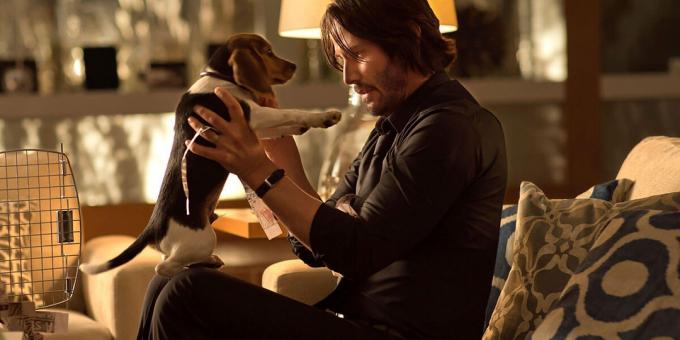Politeness is not only about holding the door behind you and not being rude to people. Marianne Parker, a business and social etiquette consultant from San Diego, and Bonnie Tsai, founder and director of etiquette and corporate relations courses and training, toldwhat habits polite people have.
1. They say thank you and please
Mom was right: these words are really necessary to maintain a culture of mutual respect in society. This is one of the first things we teach children, but adults for some reason often forget about this rule. Remember, it's never too late to get better and learn to be polite towards others!
2. They don't touch other people without permission.
A polite person will not touch another person or physically enter their personal space. The only exceptions are, perhaps, only handshakes - but this gesture also implies the readiness of both parties for it. If you are unsure whether a touch (such as a hug) would be appropriate, you can always just ask.
3. They're willing to admit they were wrong

No one likes to be wrong, but a polite person will always admit his mistake and will be ready to take responsibility for it and correct it if possible. “Some people hate to admit that they are wrong. However, they do not look smart because of this, but arrogant and ignorant, ”Tsai notes.
4. They don't ask too personal questions.
Agree: getting questions from the series "when to get married" and "why there are no children" is not very pleasant. And even if a polite person really wants to know something about you, he will not bring up such a topic first and turn to it only if the interlocutor himself led the conversation in this direction.
You will be interested🧐
- How to get away from an awkward question: 8 strategies with examples
5. They try to make others feel comfortable.
It's all about the little things - like offering a glass of water if a person is hot, or moving to another table in a cafe if a noisy company nearby interferes with a normal conversation. Polite people always monitor the situation in order to notice in time that the interlocutor is uncomfortable and try to fix it.
6. They don't interrupt
One of the main qualities of people with good manners is the ability to listen to the interlocutor to the end and not interrupt, even if you really want to. Wait until the person fully expresses his thought, and only then express yours.
7. They have a special body language

It's not enough to say polite words if your body language speaks volumes. Signs of polite body language include, for example, maintaining eye contact and maintaining a comfortable distance that does not violate personal space. But digging in the phone and close attention to the body of the interlocutor or people nearby should be avoided.
8. Their disagreement is not accompanied by anger.
You can express your disagreement by being polite! The trick, Parker argues, is to remain a pleasant and respectful conversationalist even at such a moment. “Don't raise your voice, don't gesture too violently, and certainly don't roll your eyes at someone else's point of view.”
9. They are not interested in rumors.
It is natural for many people to share some observations about other people, but a polite person will keep his opinion to himself. And to find out rumors about others is also not interesting for them - they will try to turn the conversation into another direction, or even get away from it altogether.
10. They listen more than they speak
Nothing is more annoying than a conversation that flows smoothly into a monologue! But it is not enough just to let the person speak without pulling the blanket over himself. Worth using active listener techniquesto show that you are really interested in what the person is saying and listen carefully.
You will be interested🧐
- 5 reasons why you need to talk less and listen more
11. They treat both the cleaner and the CEO alike

Politeness means that you treat all people as equals - regardless of their gender, social status, race, income level, or other factors. This means that you treat people with respect - whether you are talking to a taxi driver or your boss. It also means that you remain polite, even if there are no witnesses to see your inappropriate behavior.
12. They don't use passive aggression.
“Rudeness is always rude, even in a wrapper of decent words,” notes Parker. And covering up your desire to speak negatively with the phrase “well, I'm telling the truth” is also not a good idea. Not sure how to recognize passive aggression in your own or someone else's behavior? Check with this article.
13. For them, someone else's mistake is not a reason for joy
Even the most polite person is not alien to gloating. However, the whole difference is that he will not show his joy, because he is able to put himself in the shoes of another person and understand how unpleasant such a reaction will be to him.
14. They know the difference between outdoor and indoor communication.
During walks, we all speak louder than usual - to compensate for the noise around and the distance to the interlocutor. However, in a cafe or other room, the voice should be made quieter so as not to disturb other visitors. And polite people are well aware of this.
Read also🧐
- 13 things in business correspondence that just piss off
- How to be a good guest and host: 19th century etiquette rules that still apply today
- "Politeness is not words." Why is there so much hypocrisy in business correspondence and how to get rid of it



